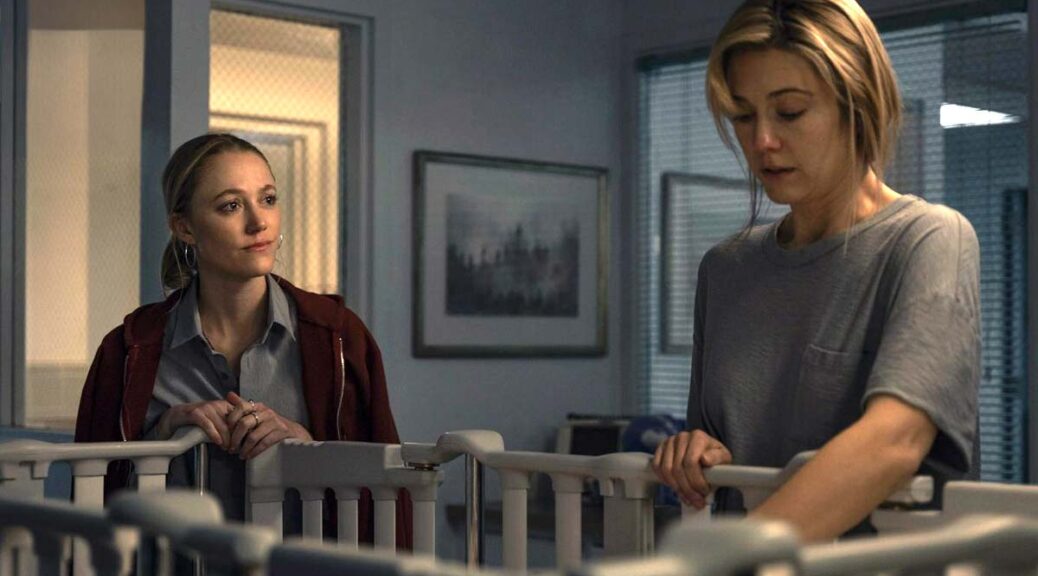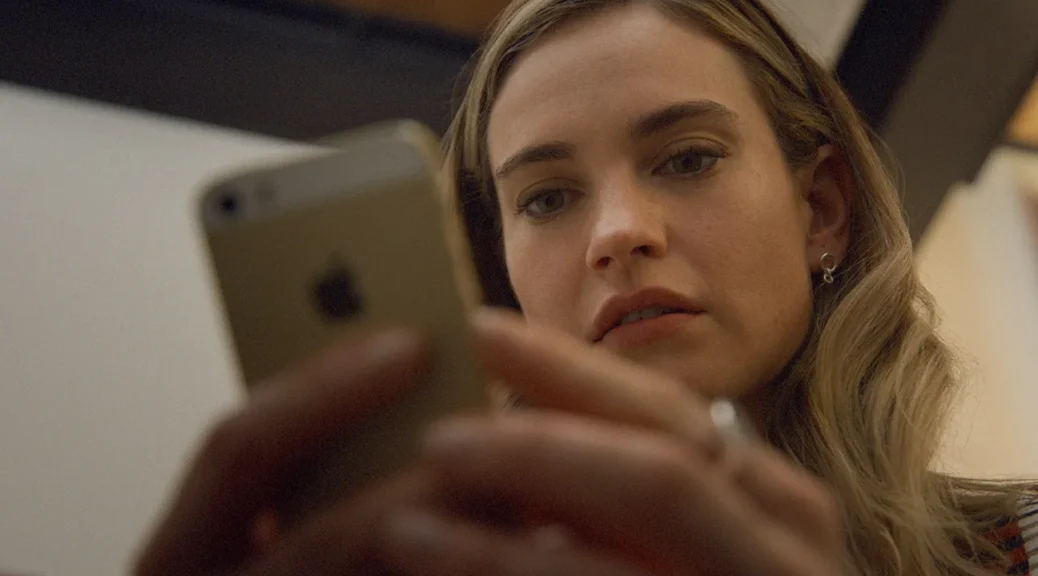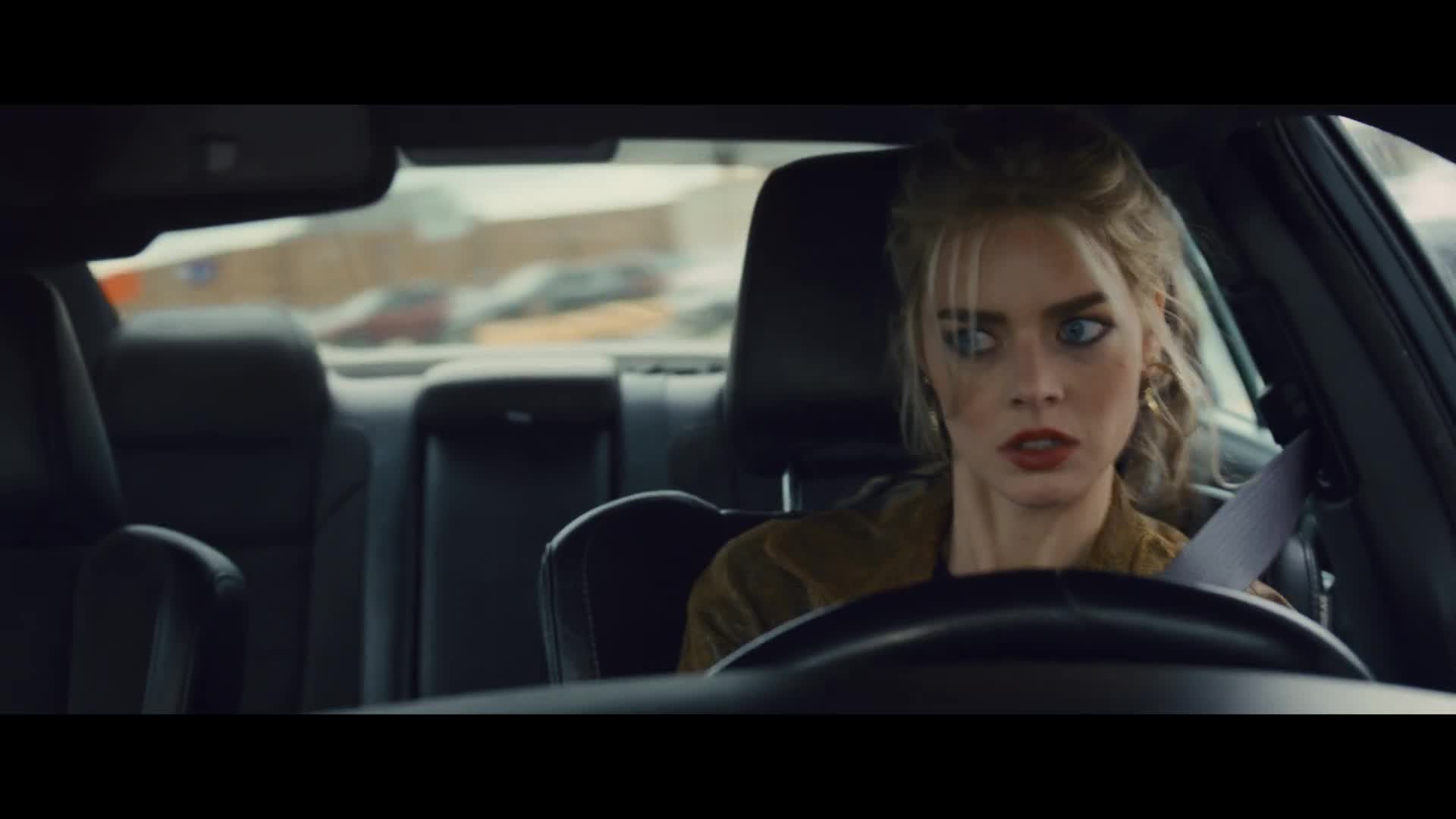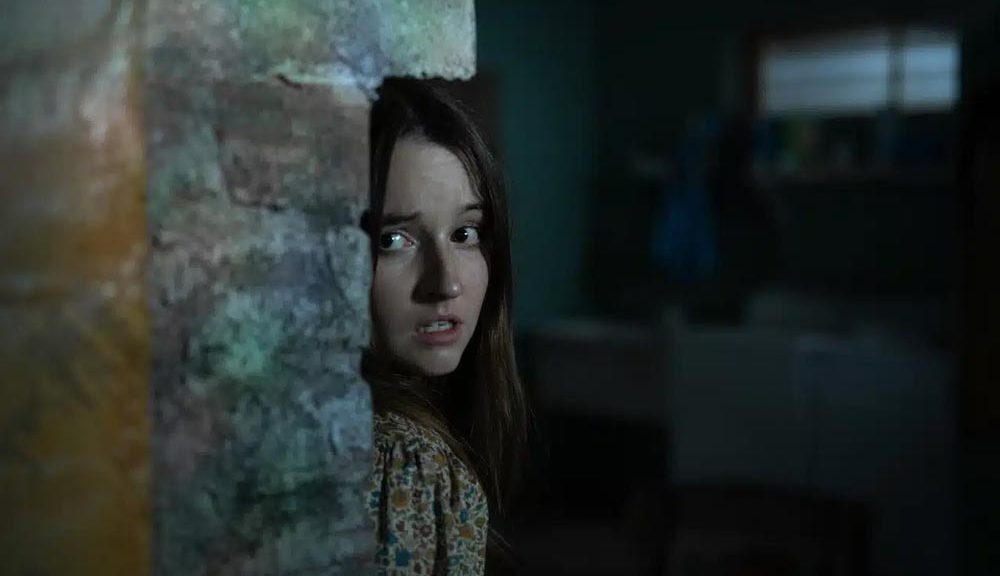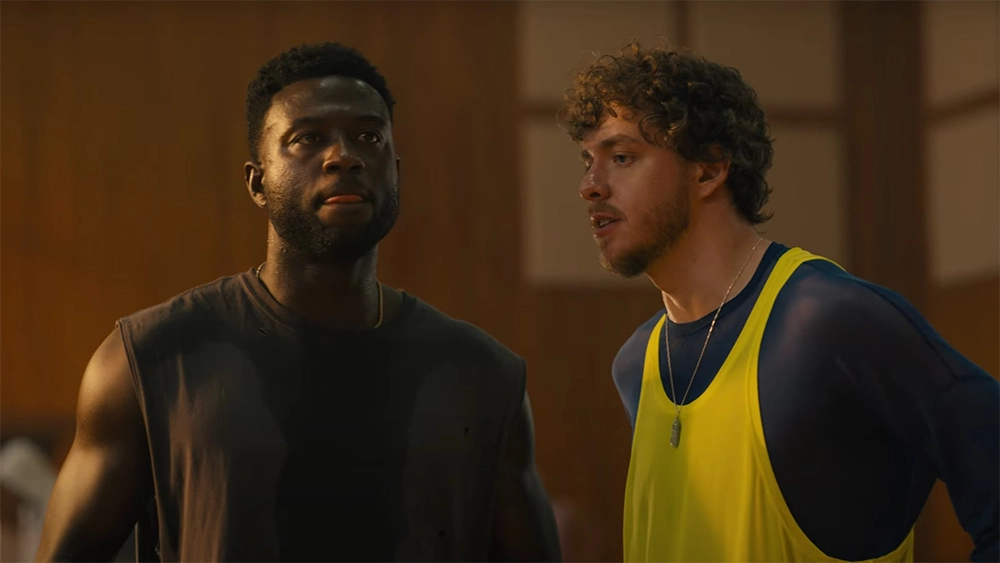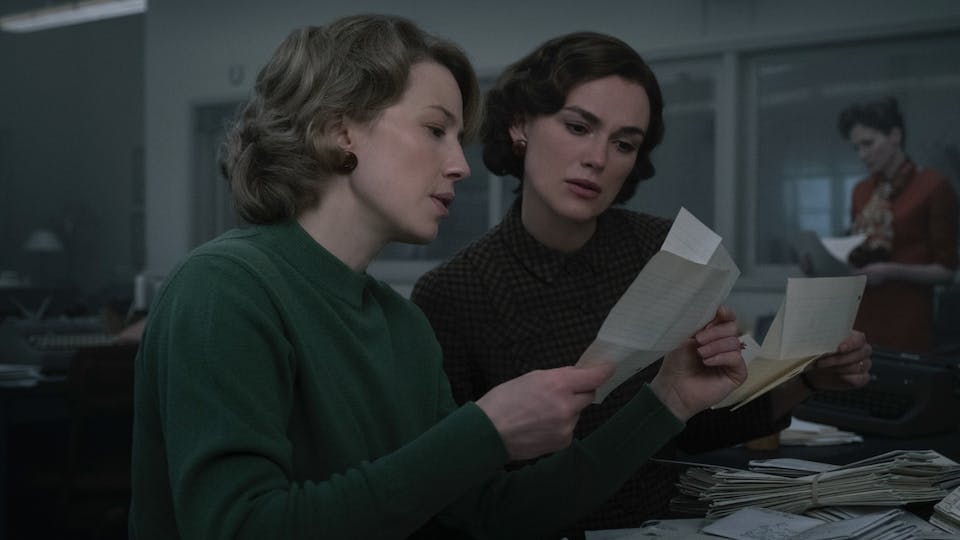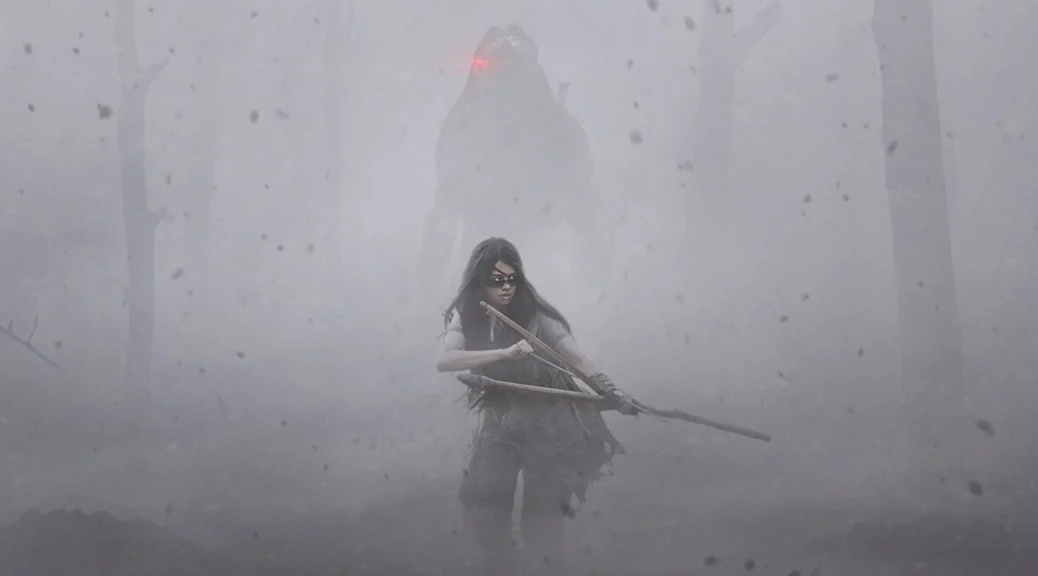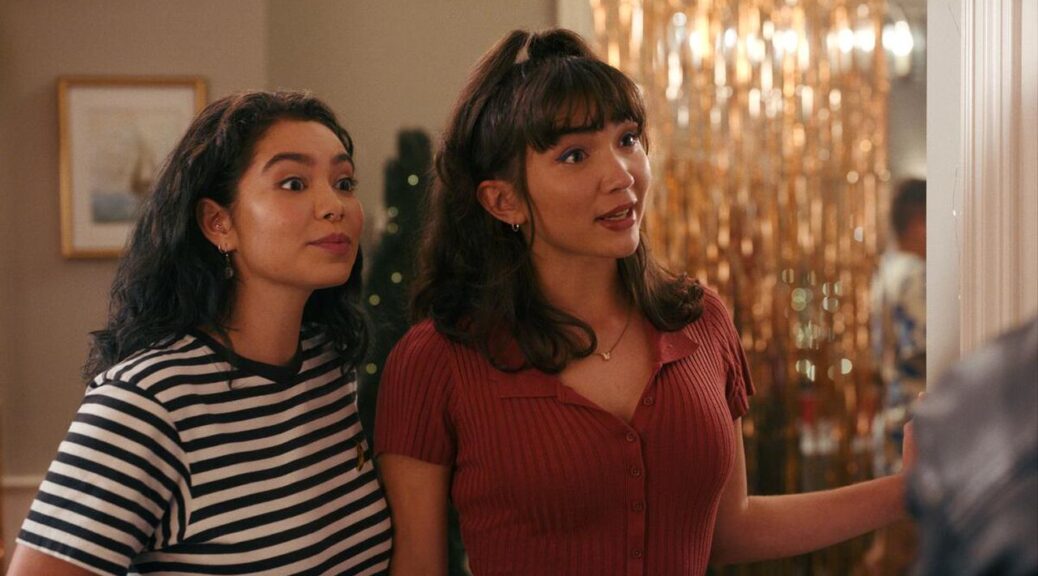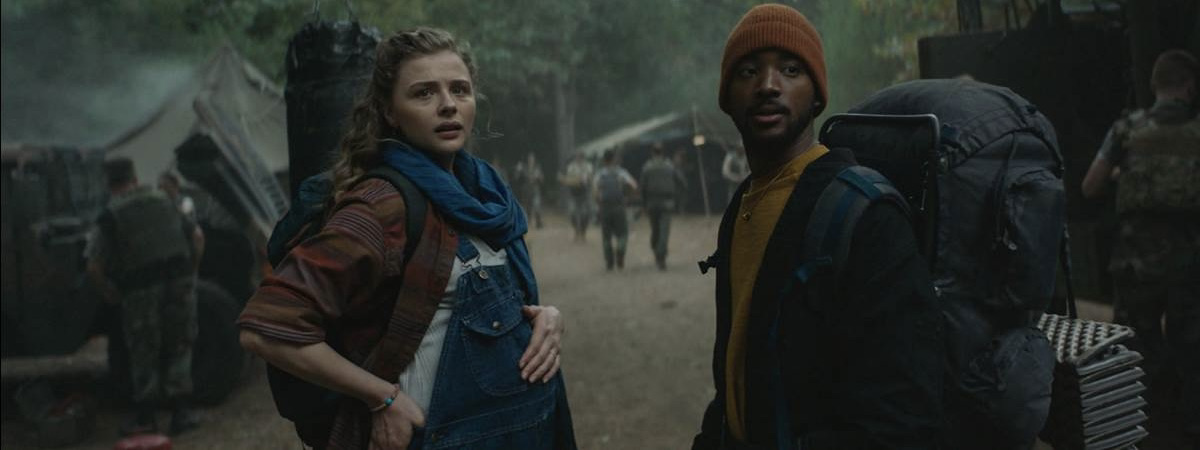The Hand That Rocks the Cradle
by George Wolf
Even at its most fun, 1992’s The Hand That Rocks the Cradle was a bit of a guilty pleasure. Hulu’s new update strips away the overdone pulp for a more focused, and more primally scary tale.
Caitlin (Mary Elizabeth Winstead) is an L.A. lawyer who diligently screens her children’s food for sugars and aims to get a new stop sign for her neighborhood. Working at a tenants rights group, Caitlin helps Polly (Maika Monroe) with a landlord problem, and when the two cross paths again at a local market, fate seems to have dealt a good hand.
Polly has experience as a nanny, and she comes with a glowing recommendation from her last employer. She looks like the perfect choice to help Caitlin and her husband Miguel (Raúl Castillo) with young Emma (Mileiah Vega) and baby Josie (Nora and Lola Contreras).
Caitlin chooses poorly.
Screenwriter Micah Bloomberg (Sanctuary) updates the original story with some important twists, and director Michelle Garza Cervera sets a pace that lets the gaslighting, secrets and lies simmer nicely before boiling over.
Cervera crafted an impressive maternal nightmare three years ago with her feature debut, Husera: The Bone Woman. Here, she trades the religious imagery for symbols of upwardly mobile success, while still toying with anyone eager to check boxes of good mother/bad mother.
Winstead and Monroe are both terrific, bringing their characters into a dance of identity with menacing dread. There is more to Caitlin than her liberal guilt, and as Polly twists the knife with increasing sociopathy, Cervera’s instincts for a modern horror thriller are again solid.
Is any remake truly “necessary?” Debatable. But even back in ’92, the original film seemed like one that wouldn’t age particularly well. The questionable decisions remain, and one or two story beats are foreshadowed too heavily, but by the time all secrets are revealed, this Cradle rocks with some newly relevant bloodletting.
